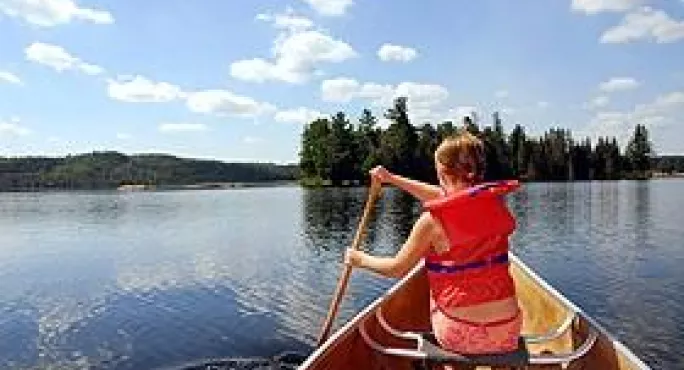Call of the wild

Outdoor learning experts are calling on teachers to abandon their “safety first” attitude and allow children as young as three to take controlled risks outside the classroom.
Young pupils must be taken out of their comfort zones and be made to explore in order to develop valuable skills, said David Evans from the Education and School Improvement Service (ESIS).
Speaking at a conference in Cardiff, Mr Evans told teachers that letting children confront risk was “vital” for their future well-being.
“After years of outdoor learning, it was a big culture shock for me to meet teachers who were nervous about going outside the classroom with pupils, and in some cases even into the playground,” he said. “It is important for their personal growth that you put pupils in situations where they can take controlled risks.
“We are talking about real learning in the real world. It doesn’t matter whether it is high-level outdoor skills or sitting around a campfire; it is all the same experience. You have to take them out of their comfort zones and stretch them.”
Mr Evans made his comments at a conference celebrating 10 years of the Forest Schools initiative in Wales, which encourages pupils to learn about the natural environment through play and the use of tools.
Carol Travers, education manager with Forestry Commission Wales’s Woodlands for Learning team, said: “A lot of people wrap children up in cotton wool and worry about what they can and can’t do with them in the outdoors. But taking risks will increase their confidence and improve their physical skills, as well as encouraging them to take responsibility for themselves, as opposed to relying on someone else to do everything for them.”
The first Forest School was set up in 2000 in a small piece of woodland in Cwmbran, Torfaen. Its founder Lucy Kirkham said the site, beside the local county hall and police headquarters, was little more than a “forgotten and overgrown bit of urban wasteland”.
But she saw the potential to give children at a nearby nursery a unique outdoor learning experience and, with the help of Torfaen Council, set about transforming it into a Forest School.
Soon politicians and educationalists started visiting and left “inspired” by what they had seen.
“I think it had a major role in changing expectations of what woodland learning and play should involve,” said Ms Kirkham, now a geography teacher and outdoor learning co-ordinator at Bassaleg School in Newport.
The advent of Forest Schools coincided with the development of the Assembly government’s play-led Foundation Phase initiative for three- to seven-year-olds, which also encouraged learning outside the classroom.
The commission launched a major survey last week to find out the exact number of Forest Schools, many of which were started in piecemeal fashion. The results are expected in January.
NATURAL SELECTION: SWEDE LEAPS RAISE THE BAR
Attendees of the Forest Schools anniversary conference heard how children in Sweden routinely learn and play outdoors as part of their early-life activities.
Magnus and Siw Linde, who launched their Rain and Shine nurseries there 25 years ago, said children gain knowledge about nature while developing skills to look after themselves.
Members of the Forestry Commission Wales’s Woodlands for Learning team visited Sweden earlier this year and were astonished at how advanced the youngsters’ life skills were.
The team’s education manager and conference organiser Carol Travers said: “In Sweden, children are told very early on that they will be trusted outdoors. There is a very relaxed attitude as opposed to here where teachers are preoccupied with risks. The children were aged from two to six, and carried their own equipment and did everything themselves, under supervision.”
- Original headline: Call of the wild: `Cotton-wool kids need to get out of class’
Keep reading for just £1 per month
You've reached your limit of free articles this month. Subscribe for £1 per month for three months and get:
- Unlimited access to all Tes magazine content
- Exclusive subscriber-only stories
- Award-winning email newsletters



